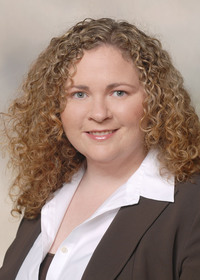Information Possibly Outdated
The information presented on this page was originally released on September 16, 2004. It may not be outdated, but please search our site for more current information. If you plan to quote or reference this information in a publication, please check with the Extension specialist or author before proceeding.
Children, adults need help coping with disaster stress
MISSISSIPPI STATE -- No age is immune from stresses that accompany natural disasters such as Hurricane Ivan, but children may need extra help coping with the situation.
"Adults may get so caught up in all the traumatic details like relocations and damaged property that they overlook the emotional needs of the children around them," said Louise Davis, child and family development specialist with Mississippi State University's Extension Service.
Davis said adults can help minimize negative reactions by remaining calm as they face challenges and reassuring children that adults will remain close by to help them.
"Children may become clingy as they feel abandoned or neglected by parents who are busy cleaning or rebuilding after a disaster," Davis said. "Other adults can help by offering to do specific jobs while the parent is occupied with comforting children."
Davis said every child's reaction to a disaster will vary depending on age, maturity and previous experience. Many children have increased fear of storms, darkness, abandonment and death. The first step in addressing these fears is to encourage children to verbalize their concerns.
"Their favorite adult may need to sit and hold them until they are calmer, then attempt to involve the child in some activity, such as drawing, reading or playing with toys. Try to stay within the child's eyesight and continue talking to each other while working on your own projects," Davis said.
One problem that compounds parents' and other caregivers' efforts to help children is their own stress levels. Signs that adults need additional help include increased depression, irritability, confusion, anxiety, appetite or sleep disorders, exhaustion or hyperactivity.
"Whenever adults become burned-out by an ordeal, they are more likely to communicate poorly with children," Davis said. "Be aware of your own stress level, and don't take out your frustrations on the people around you who require the most patience; that may include anyone from the youngest to the oldest people in your life."
Watch for unusual behaviors in children that may indicate anxiety from the crisis. Some unusual behaviors include hitting or kicking in anger or frustration, withdrawing or becoming silent, reverting to behaviors from an earlier age, or exhibiting symptoms of an illness.
"When children exhibit unusual behaviors, they most likely are craving attention or security," Davis said. "Parents need to respond continually to their needs, to assure them they are loved and to encourage them to express their feelings."
John Hawkins, a counselor at MSU's Student Counseling Center, said if stress reaches a crisis level, seek help from a professional counselor.
"The intensity, severity and duration of the symptoms should help parents know when their child needs professional counseling," Hawkins said. "Other recent experiences, such as a divorce, a death of someone who was close to them or a move to a new neighborhood, may increase a child's vulnerability to a traumatic event."
Hawkins said some fears are normal, but most new fears will subside as time passes.
"Don't hesitate to go to a professional counselor because many adults and children find it helpful to talk with a counselor with specialized training in post-traumatic reactions," he said. "Professionals can help children and adults understand and deal with how they are feeling."




